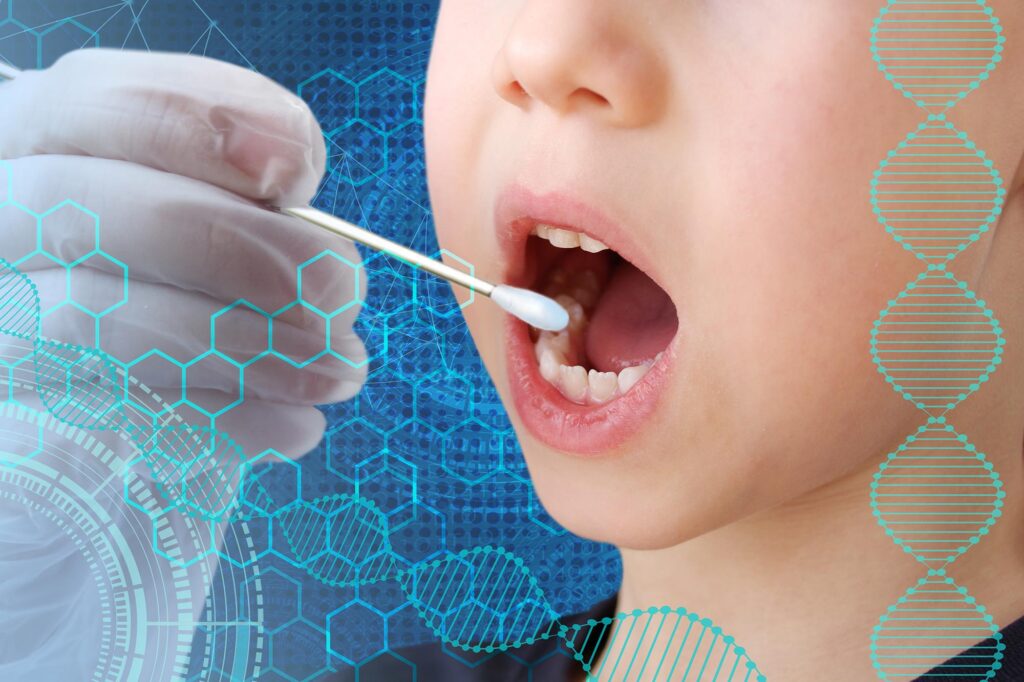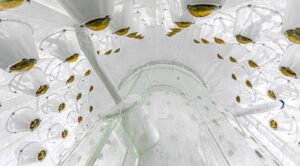
Researchers at the University of Tokyo have uncovered a groundbreaking discovery that could transform our understanding of oral health. Nearly three-quarters of the global population may carry newly identified genetic elements called Inocles, which have potential implications for immunity and cancer risk. These massive DNA structures, previously unnoticed, play a crucial role in helping bacteria adapt to the dynamic environment of the human mouth.
The discovery of Inocles, made in collaboration with international researchers, sheds new light on the survival mechanisms of bacteria in the oral cavity. This finding could have significant consequences for human health, disease prevention, and microbiome research.
Revisiting the Oral Microbiome
While it may seem that modern medicine has mapped every aspect of the human body, recent discoveries suggest otherwise. The past decade has seen the identification of small, previously unrecognized organs, and a renewed focus on the microbiome, including the oral microbiome. Inspired by reports of unusual DNA in soil microbiomes, Project Research Associate Yuya Kiguchi and his team examined a vast collection of saliva samples from the Yutaka Suzuki Lab at the University of Tokyo’s Graduate School of Frontier Sciences. Their goal was to determine if similar hidden DNA elements could be found in human saliva.
“We know there are a lot of different kinds of bacteria in the oral microbiome, but many of their functions and means of carrying out those functions are still unknown,” said Kiguchi. “By exploring this, we discovered Inocles, an example of extrachromosomal DNA — chunks of DNA that exist in cells, in this case, bacteria, but outside their main DNA. It’s like finding a book with extra footnotes stapled to it, and we’re just starting to read them to find out what they do.”
Advanced Sequencing Breakthrough
Identifying Inocles was no easy feat due to the limitations of standard sequencing methods, which break genetic material into fragments, making it difficult to piece together large elements. To overcome this challenge, researchers employed advanced long-read sequencing technology capable of capturing extended stretches of DNA.
A major advancement came from co-first author Nagisa Hamamoto, who developed a technique called preNuc. This method selectively removes human DNA from saliva samples, significantly improving the accuracy of sequencing long fragments of other DNA. With this approach, the team successfully assembled complete Inocle genomes for the first time, discovering that they are hosted by the bacterium Streptococcus salivarius.
“The average genome size of Inocle is 350 kilobase pairs, a measure of length for genetic sequences, so it is one of the largest extrachromosomal genetic elements in the human microbiome. Plasmids, other forms of extrachromosomal DNA, are at most a few tens of kilobase pairs,” said Kiguchi. “This long length endows Inocles with genes for various functions, including resistance to oxidative stress, DNA damage repair, and cell wall-related genes, possibly involved in adapting to extracellular stress response.”
Future Research Directions
The research team is now focused on developing stable methods for culturing Inocle-containing bacteria. This will enable them to investigate how Inocles function, their potential to spread between individuals, and their influence on oral health conditions such as cavities and gum disease. With many Inocle genes still uncharacterized, researchers plan to use a combination of laboratory experiments and computational simulations, like AlphaFold, to predict and model the roles Inocles may play.
“What’s remarkable is that, given the range of the human population the saliva samples represent, we think 74% of all human beings may possess Inocles. And even though the oral microbiome has long been studied, Inocles remained hidden all this time because of technological limitations,” said Kiguchi. “Now that we know they exist, we can begin to explore how they shape the relationship between humans, their resident microbes, and our oral health. And there’s even some hints that Inocles might serve as markers for serious diseases like cancer.”
The findings, published in Nature Communications, mark a significant step forward in microbiome research. The study was supported by grants from various Japanese institutions, highlighting the collaborative effort behind this discovery.
As researchers delve deeper into the mysteries of Inocles, the implications for oral health and disease prevention could be profound. The potential for these genetic elements to serve as markers for serious conditions like cancer underscores the importance of continued exploration in this field.







